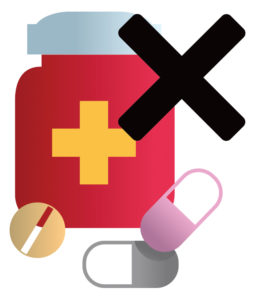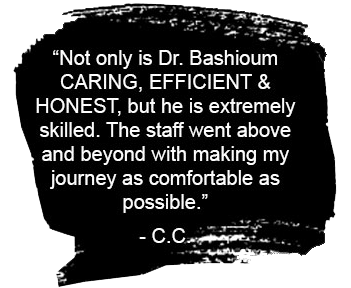Surgeons Role in Fighting Opioid Crisis
November 14th, 2018
What role do surgeons play in helping to fight the opioid crisis?
First, it’s vital that all surgeons assess how they are helping patients manage pain and evaluate whether they are choosing the least addictive options possible. Cosmetic surgeons in particular can modify procedures to reduce pain after surgery, such as using long acting local anesthetics, and change the way they do surgery. By eliminating the common practice of performing multiple cosmetic procedures at the same time, it helps to minimize excess pain and at the same time, helps patients tolerate some discomfort.
In my practice, I want my patients to be educated about the risks of surgery and pain medications so they are truly given informed consent for any procedure. We go through suggestions with them for alternatives in managing their pain control following surgery. Using ice, maintaining hydration, avoiding sleep deprivation and by following an activity level prescribed by your surgeon are important. Patients who have struggled with chemical dependency should be especially careful and create a plan ahead of time with their doctor for weaning off pain medication after surgery. Lastly, safely dispose left over opioid medication as pain lessens, to help minimize the risk of addiction. Opioid addiction is a serious issue and both doctors and patients play a role in fighting this crisis.
Look at Me: Extreme tattoos and distortion of the body
November 11th, 2013
Extreme tattoos and distortion of the body by means of one or more surgical procedures is generally referred to as body modification. An entire website is devoted to the practice is here.
Individuals turn to extreme measures to alter their appearance through multiple procedures such as tattoos, piercings, skin stretching, facial clefting and subcutaneous implants trying to achieve a unique facade or persona. Erick Sprague, or the Lizardman represents the full expression body modification, including full-body tattoos of green scales and a bifurcated or split tongue. All of these procedures are done in specialized salons or studios, outside the regulation of medical practice. Most often, these modifications consist of actual surgical procedures and seem to go unnoticed by the officials. This type of body modification might be viewed as practicing medicine without a license. By and large, most physicians have chosen not to be involved in the realm of body modification. These extreme changes in physical appearance are beyond the norm for our culture in America.
Although these cases may represent a variant of body dysmorphic disorder, I believe many individuals enjoy the attention, even seek it out. They do the outlandish procedures to get attention, pure and simple. They like being looked at. In fact, Lizardman has used his manufactured appearance and the attention it garners, to make money from personal appearances as a performer.
I am trying not being judgmental. Many well-adjusted patients choose cosmetic surgery for many of the same reasons. Pop media culture has cultivated the Look at Me mentality. In fact, most people do care what they look like and strive to look their best. In my opinion, it is the extreme end of the body modification spectrum that might suggest unconventional reasons to seek out an appearance outside the accepted norm.
Read more: Dr. Bashioum’s interview in Star Tribune article, and Dr. Bashioum seen on KARE 11 TV about ear gage repair.

